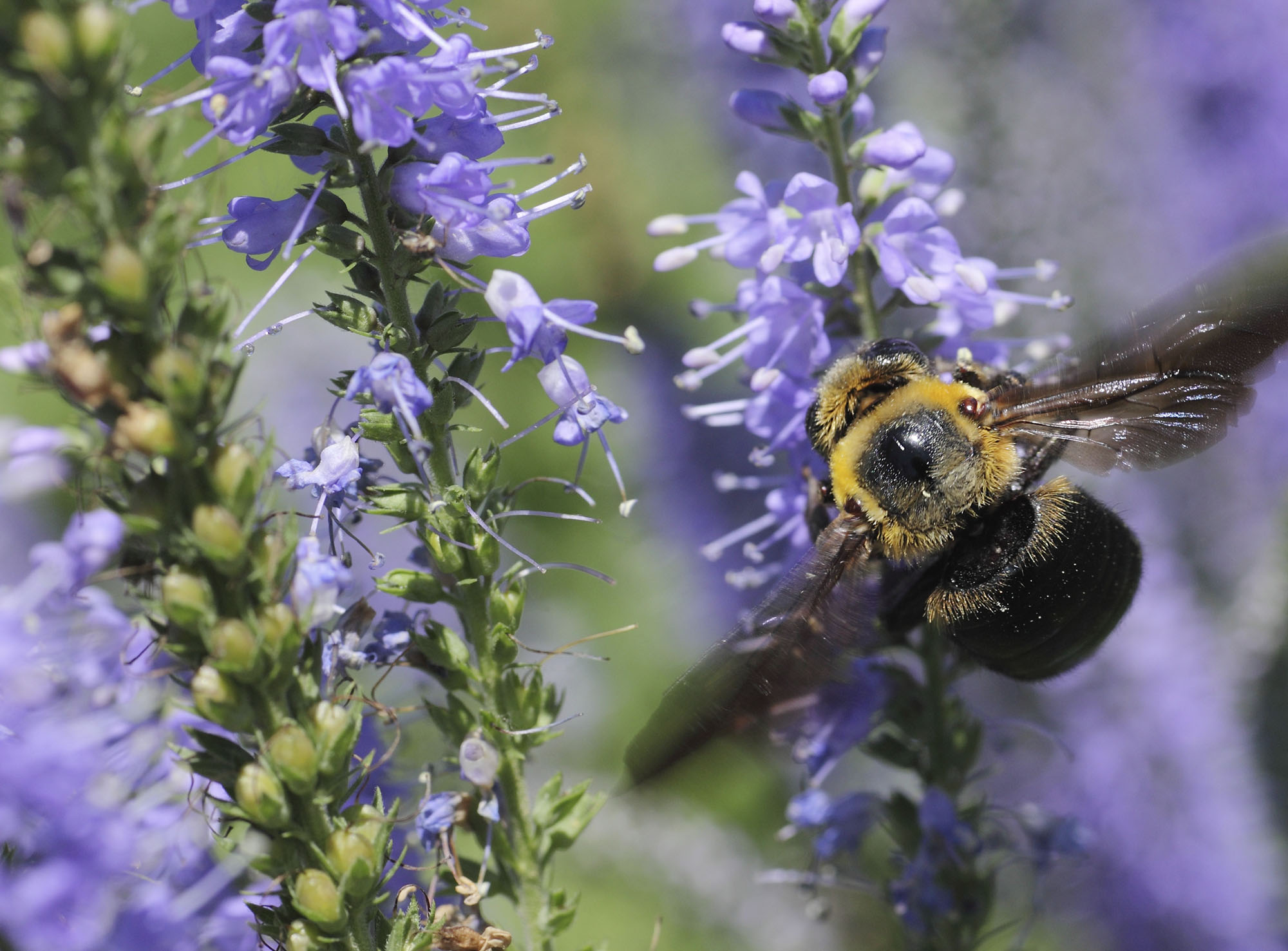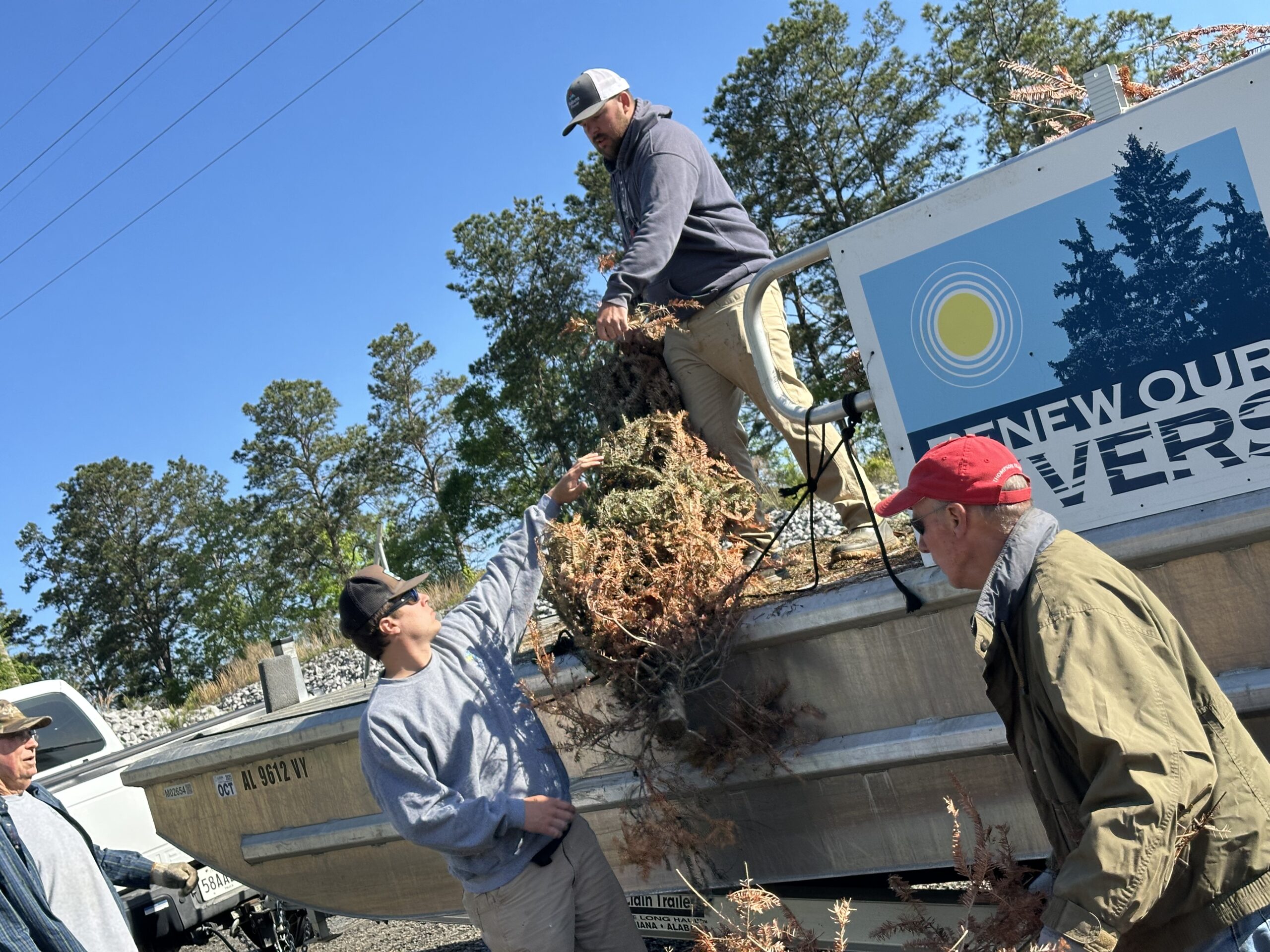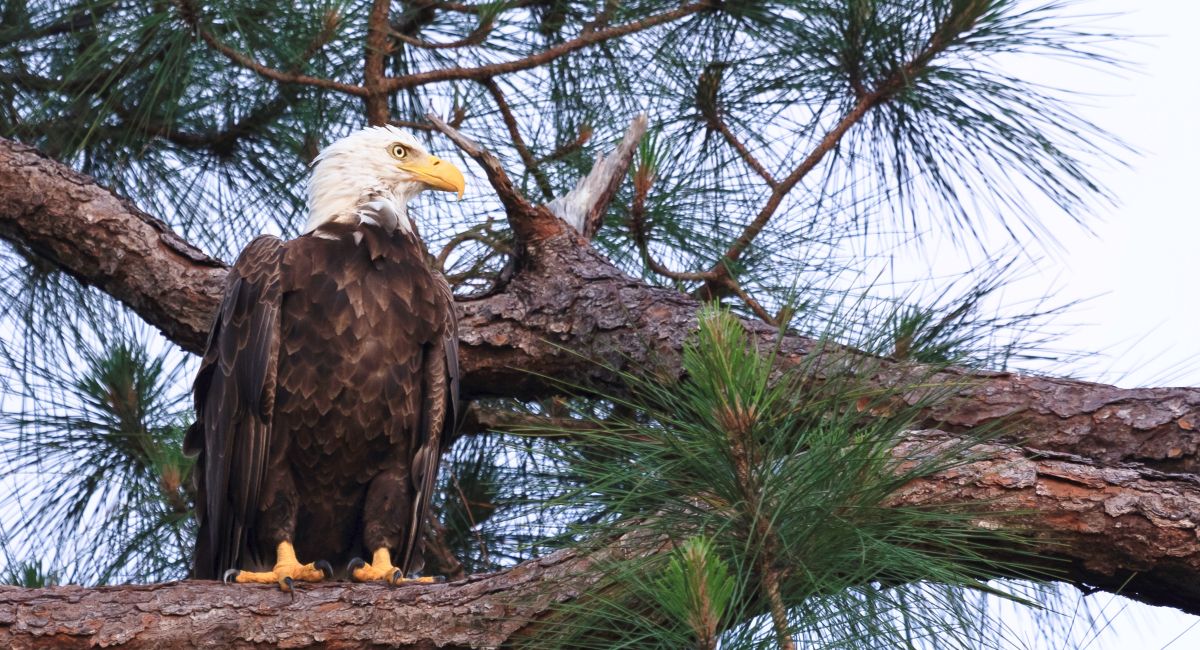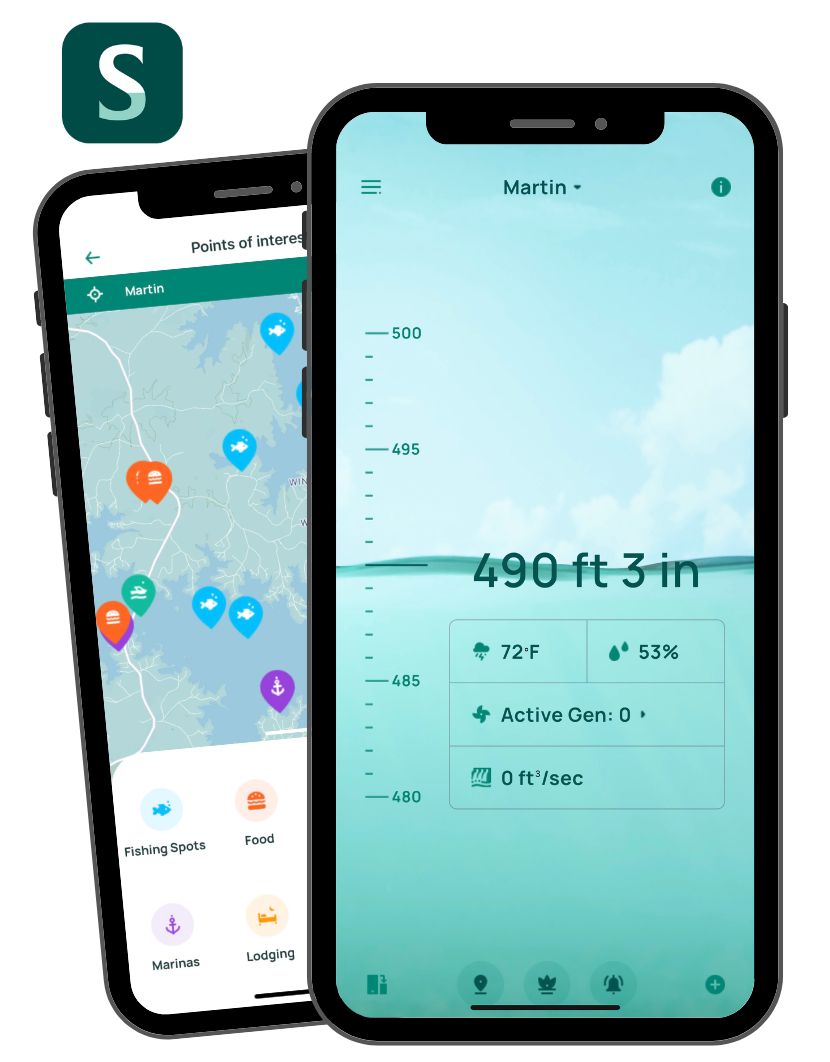As Alabamians sink their teeth into the state’s luscious, summer bounty of local fruits and vegetables, it’s worth taking a moment to consider the pollinators that help make it happen.
That’s what scientists, naturalists and farmers are doing during Pollinator Week, June 21-27.
Alabama Power and its parent, Southern Company, recognized the importance of pollinators in helping sustain the biological diversity of the natural world — plus their positive impact on agriculture and the economy — and are conducting research, with partners, that support efforts to keep pollinators thriving.
Pollinators are bees, birds, bats and other insects that help carry pollen to three quarters of our flowering plants and food crops. Without help from pollinators, most plants would not be able to produce fruits and seeds that support both people and wildlife.
In recent years, scientists have documented a global decline in pollinator populations, including honey bees, native bees and monarch butterflies, underscoring the need for pollinator conservation efforts.
Alabama Power and Southern Company have partnered with Auburn University and researchers from the Electric Power Research Institute (EPRI), to evaluate the conservation benefits that electric utility rights-of-way (ROWs) can offer pollinator species.
Millions of acres nationwide serve as ROWs for power lines and pipelines, and that land can provide quality pollinator habitat, as well as beneficial habitat for a variety of other wildlife.
The ongoing research with Auburn involves testing different vegetation-management practices that can help maintain ROWs while also promoting native plants that serve as ideal food for pollinator foraging.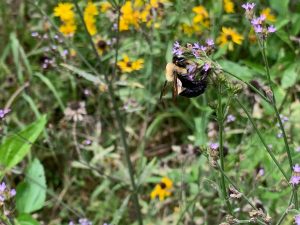
“If you manage land to promote the right vegetation, it will increase birds, bats and other animals that use powerline rights-of-way as their neighborhood,” said Jason Carlee, Alabama Power environmental affairs supervisor.
The research began in 2018 on select sections of Alabama Power ROWs. So far, researchers have tallied 61 bee species on the company ROWs and identified 86 flower species on surveyed ROW property.
Ashley Bennett, who is on the EPRI research team, said preliminary results show the ROW lands are supporting significantly more pollinators and a greater diversity of species than the land that’s just off the rights-of way, “which is very exciting.”
“It suggests power companies can make important contributions to pollinator conservation through their management of ROW habitat,” Bennett said.
The research is continuing to determine how various vegetation-management practices affect the diversity of the species on ROW lands.
Alabama Power and Southern Company are also actively involved in bat research, also involving multiple partners. Much of the research focuses on combatting white nose syndrome, a highly contagious disease that has killed more than six million bats over the past decade. Since 2017, the companies have partnered with the National Fish and Wildlife Foundation to support the Bats for the Future Fund, which helps provide resources for white nose syndrome research.
Estimates put the annual value of pollination provided by bats alone to agriculture and timber production nationwide at more than $3 billion.
In addition to the ongoing research, Alabama Power has been actively enhancing pollinator habitat by installing “pollinator plots” at several of The Preserves, Alabama Power’s 65 public recreation sites located along its 3,500 miles of shoreline in the state. The company maintains six pollinator-friendly plots at four sites: two at Little Fox Creek Preserve at Lake Harris; two at Double Cove Park at Logan Martin Lake; one at Beeswax Park at Lay Lake; and one at Slackland Beach on Weiss Lake. A seventh plot is under development at Jordan’s Journey nature trail at Lake Jordan.
Learn more about Alabama Power’s ongoing efforts to support pollinators and other important species by visiting www.alabamapower.com. Search for “Environmental Stewardship.” For more information about pollinators and Pollinator Week, visit www.pollinator.org.

